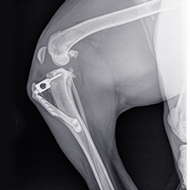“Now, we can start changing our thinking about strategies for antibiotic discovery."
Discovery could lead to treatments for Tuberculosis and MRSA
An antibiotic that eliminates pathogens without encountering any detectable resistance, has been discovered by scientists at Northeastern University in Boston, Massachusetts.
It is a discovery that questions long-held scientific beliefs and holds great promise for treating chronic infections, such as tuberculosis and those caused by MRSA.
The antibiotic, which has been named teixobactin, was discovered during a routine screening for antimicrobial material. Lead researcher Professor Lewis’ lab played a key role in analysing and testing the compound for resistance from pathogens and say that that this marks the first discovery of an antibiotic to which resistance by mutations of pathogens have not been identified.
Professor Lewis said: “Now, we can start changing our thinking about strategies for antibiotic discovery. So far, the strategy has been based on developing new antibiotics faster than the pathogens acquire resistance. Teixobactin presents a new opportunity to develop compounds that are essentially free of resistance—a more intelligent approach.”
The research team believe that the discovery of teixobactin presents a promising new opportunity to treat chronic infections caused by staphylococcus aureus, or MRSA, that are highly resistant to antibiotics, as well as tuberculosis, which involves a combination of therapies with negative side effects.
Looking ahead, the research team hopes to develop teixobactin into a drug.
The paper, A new antibiotic kills pathogens without detectable resistance, is published in Nature.







 Birmingham Dogs Home has issued an urgent winter appeal as it faces more challenges over the Christmas period.
Birmingham Dogs Home has issued an urgent winter appeal as it faces more challenges over the Christmas period.
